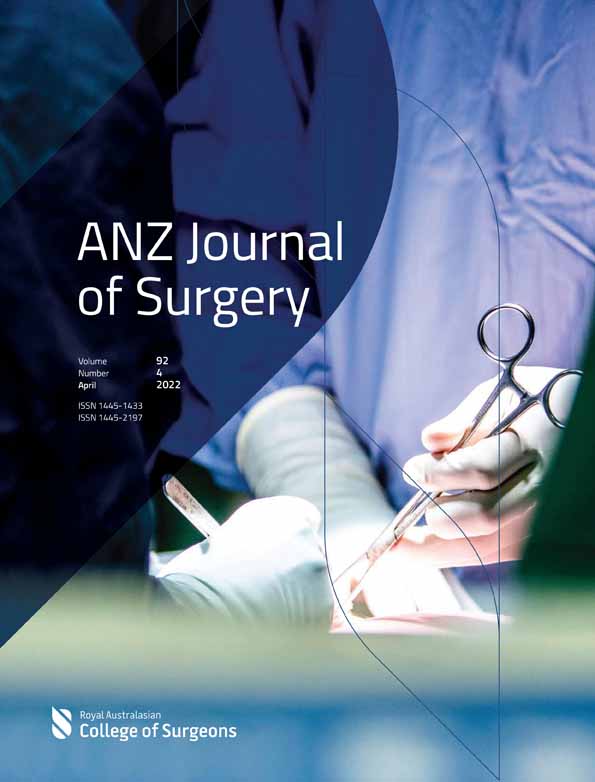Surgical management and long-term functional outcomes after anastomotic leak in patients undergoing minimally invasive restorative rectal resection and without a diverting ileostomy
The corresponding author is not the recipient of a research scholarship and is not a registrar in training.
Abstract
Background
Anastomotic leak (AL) is the anathema of colorectal surgery, with well-documented adverse impacts on patient morbidity and mortality. The long-term consequences of AL on bowel function and quality of life (QoL) is less well-defined after minimally invasive surgery. By omitting a temporary diverting ileostomy (TDI), it is postulated that the minimally invasive approach will lead to early diagnosis and expedient management of AL.
Methods
This retrospective and cross-sectional study included patients who underwent minimally invasive restorative rectal surgery with a low pelvic colorectal anastomosis and without a TDI at two tertiary hospitals in Brisbane, Australia between 2004 and 2018. Surgical management of AL is described and long-term functional outcomes were evaluated through validated questionnaires.
Results
Two hundred and twenty-four patients met inclusion criteria. AL was associated with lesion proximity to the anal verge (P = 0.011), total mesorectal excision (TME) (P <0.001) and advanced malignant disease (P = 0.019). Twenty-four patients experienced an AL (11%) diagnosed at a median of 5.5 days post-operative. Survey responders (n = 99, 62%) included 10 (10%) AL and 89 (90%) non-AL patients, with a median follow-up of 4 and 6.4 years. SF-36 and FISI scores were comparable between groups, however AL patients had worse LARS scores (P = 0.028). Patients undergoing TME, irrespective of AL, had poorer low anterior resection syndrome (LARS) (P <0.001) and FISI scores (P = 0.001).
Conclusion
AL in patients undergoing minimally invasive low pelvic colorectal anastomosis without a TDI does not impact long term QoL. The occurrence of LARS is dependent on the extent of resection, rather than the occurrence of AL.
Conflict of interest
None declared.
Open Research
Data availability statement
The data that support the findings of this study are available from the corresponding author, upon reasonable request.




